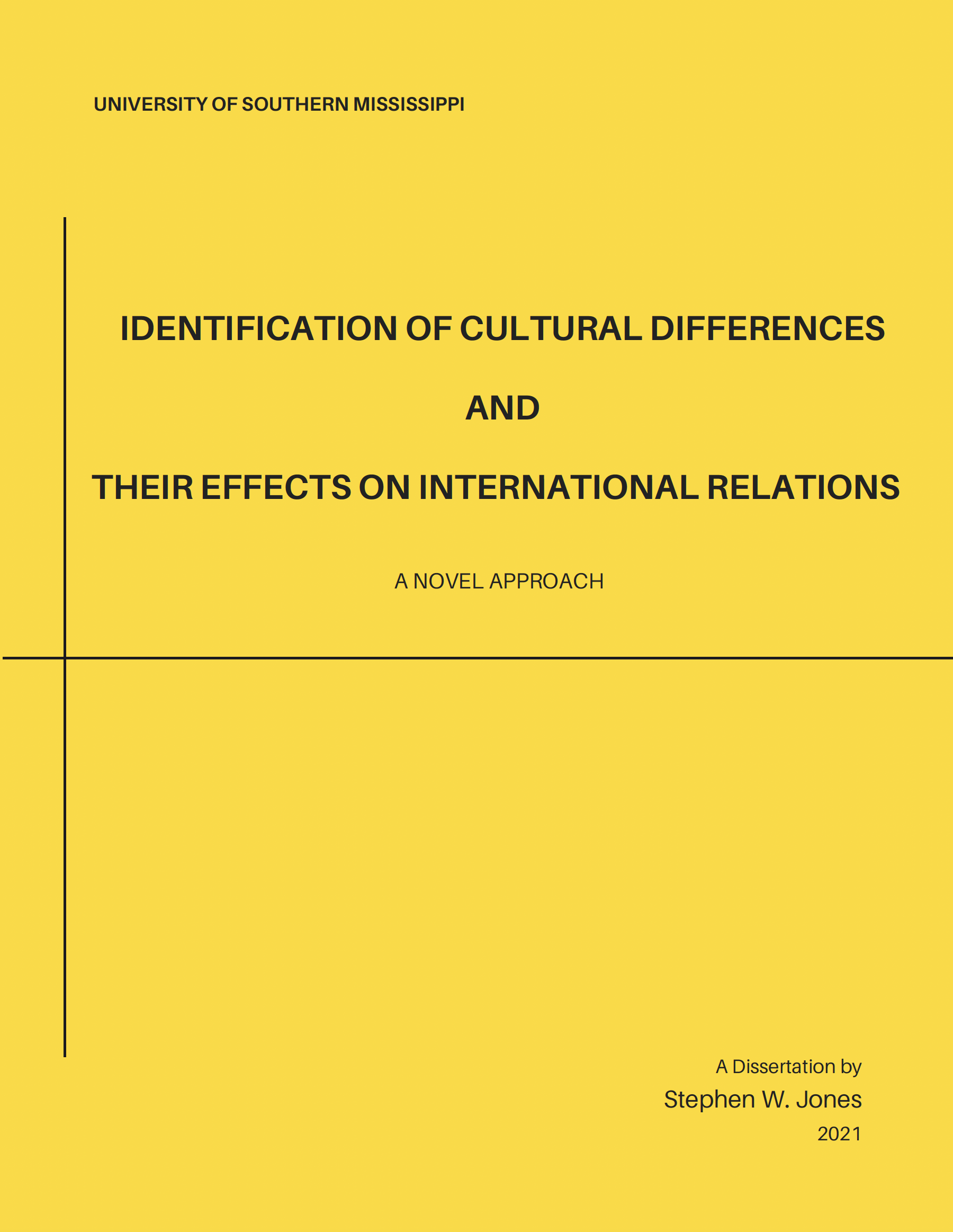Identification of Cultural Differences and their effects on International Relations
A NOVEL APPROACH
A DISSERTATION BY STEPHEN W. JONES
ABSTRACT: International Relations suffers from underspecified treatments of culture that risk reifying, essentializing, or ignoring the effects of cultural differences in the conduct of relationships between states. Following a review of the development of the culture concept, this interpretivist, epistemologically critical realist, dissertation introduces intercultural adaptive frameshifting from the intercultural communication literature. To assess whether culture has effect within an epistemic community, four frameworks are evaluated within a non-IR field (global Christian reasoning). Speech act theory is used to assess meaningful affect through illocutionary and/or perlocutionary divergence based on cultural difference.
Following the findings that such cultural differences do in fact matter in the non-
International Relations epistemic community, the culture concept is brought back into IR through three case studies employing most-similar and most-different case design. Counterfactual analysis is used to assess the potential for intercultural competence, exercised by one foreign policy executive in each dyadic case, to impact the conduct of international relations at a critical juncture brought about by cultural difference. Through process tracing, and particularly through practice tracing, culture is found to meaningfully affect the conduct of international relations, and intercultural adaptive frame-shifting (also called intercultural competence or intercultural development) is found to attenuate the effects.
The findings of this dissertation are intentionally tentative, and primarily take the form of passing the hoop-test. This program of research points to the need for more robust consideration of the culture concept in International Relations. It does not supplant existing paradigms, but could easily come alongside and be used within Neoclassical Realism, Constructivism, and some strands of Liberalism and Neoliberal Institutionalism. The findings are meaningful for practice as well as theory, as intercultural competence is both assessable and trainable.
A password is required to view this content.
To request a password, click here.
Use the link above to view the dissertation in full-spread layout (like a book). The embedded text below in full-screen mode is best for mobile viewing.

About the author.

Stephen W. Jones teaches, trains, and studies at the intersection of intercultural relations, cross-cultural ministry, and political science. He earned his Ph.D. in International Development at the University of Southern Mississippi and his M.A. in Intercultural Relations from the University of the Pacific, in conjunction with the Intercultural Communication Institute.
He was formerly Assistant Professor of International Studies at Crown College (2013-2020) and Assistant Professor of Intercultural Studies at Grace University (2009-2012).
Stephen W. Jones, Ph.D. is father of three and husband of one. He lives with his family in Berlin, Germany where he serves as Fördermitarbeiter für internationale Kulturfragen und Verständigung with Envision Berlin.
Stephen W. Jones works to see transformation in the lives of individuals, communities, and the world. He yearns to see beauty rise out of pain, and believes that rooting lives in eschatological hope sets people free.
Stephen W. Jones
